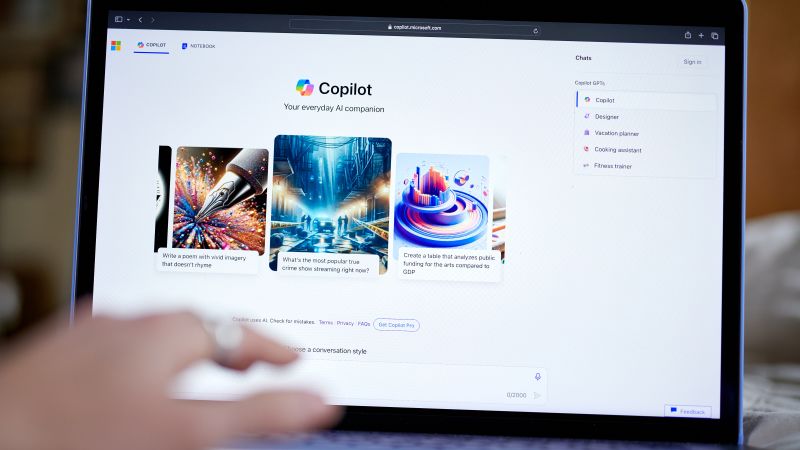
AI is not ready for primetime
CNN
AI tools like ChatGPT have gone mainstream, and companies behind the technologies are pouring billions of dollars into the bet that they will change the way we live and work.
AI tools like ChatGPT have gone mainstream, and companies behind the technologies are pouring billions of dollars into the bet that they will change the way we live and work. But alongside that promise comes a constant stream of concerning headlines, some highlighting AI’s potential to churn out biases or inaccuracies when responding to our questions or commands. Generative AI tools, including ChatGPT, have been alleged to violate copyright. Some, disturbingly, have been used to generate non-consensual intimate imagery. Most recently, the concept of “deepfakes” hit the spotlight when pornographic, AI-generated images of Taylor Swift spread across social media, underscoring the damaging potential posed by mainstream artificial intelligence technology. President Joe Biden urged Congress during his 2024 State of the Union address to pass legislation to regulate artificial intelligence, including banning “AI voice impersonation and more.” He said lawmakers need to “harness the promise of AI and protect us from its peril,” warning of the technology’s risks to Americans if left unchecked. His statement followed a recent fake robocall campaign that mimicked his voice and targeted thousands of New Hampshire primary voters in what authorities have described as an AI-enabled election meddling attempt. Even as disinformation experts warn of AI’s threats to polls and public discourse, few expect Congress to pass legislation reining in the AI industry during a divisive election year. That’s not stopping Big Tech companies and AI firms, which continue to hook consumers and businesses on new features and capabilities.





















 Run 3 Space | Play Space Running Game
Run 3 Space | Play Space Running Game Traffic Jam 3D | Online Racing Game
Traffic Jam 3D | Online Racing Game Duck Hunt | Play Old Classic Game
Duck Hunt | Play Old Classic Game











